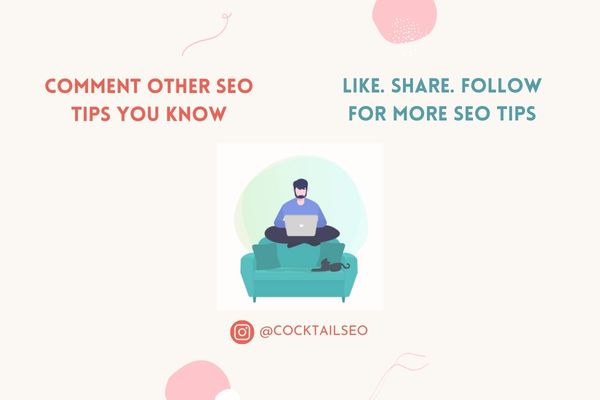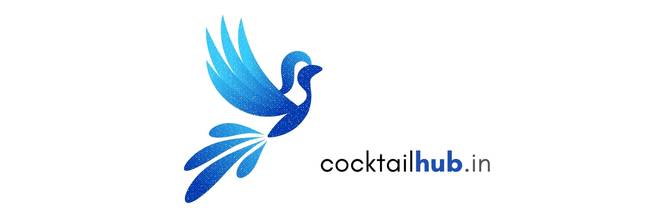What is SEO?
SEO or Search Engine Optimization is the process of optimizing a website for increased visibility and traffic.
While it may seem like an unnecessary expense, SEO can actually be a very effective way to grow your business.
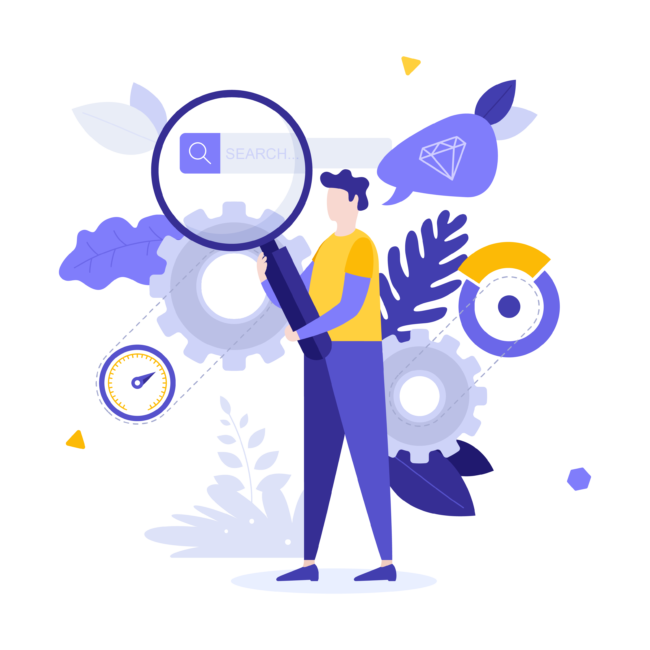
Here are 5 reasons you need SEO on your website:
If you’re running a website, then you need to be using SEO techniques to get your site ranked as high as possible in search engine results pages.
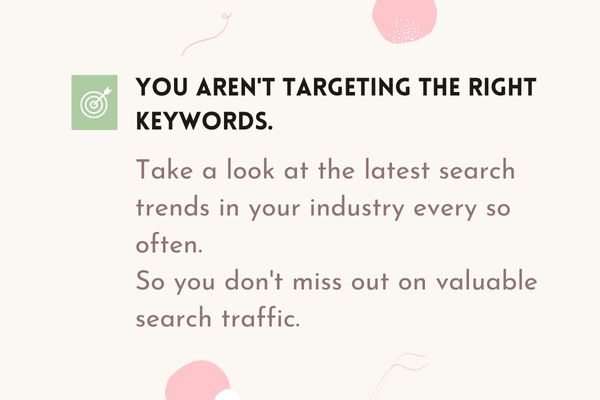
1. Increased Traffic:
Without optimization, your website may only receive a small percentage of the search engine traffic that it deserves.
Through SEO, you can increase your site’s visibility and drive more targeted visitors to your page.
And if you’re not targeting the right keywords, then all your efforts may be for naught.
If you want to stay ahead of your competition in the search engine optimization (SEO) game, it’s important to keep an eye on the latest search trends.
By doing so, you can adapt your strategies and tactics as needed to make sure your website is always ranking as high as possible.
Increased Sales:
One of the most important benefits of SEO is that it can help increase your sales.
You can use powerful keywords to target a niche audience and then promote your products or services to these people.
If they find your website, they will be more likely to make a purchase from you.
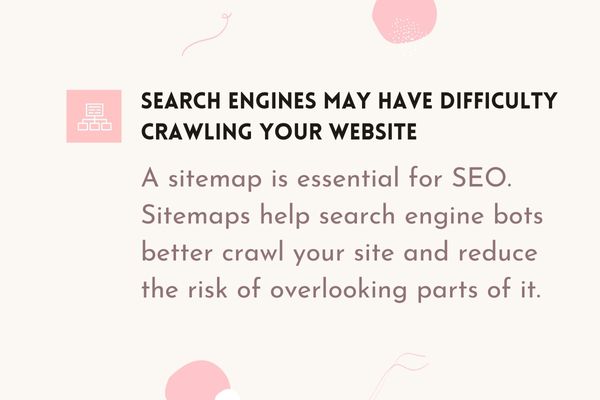
2. Search engines may have difficulty crawling your site and that’s why you need SEO
If you’re running a website, it’s important to make sure that it’s easily crawled by search engines.
Unfortunately, many site owners don’t realize that there are things they can do to help improve their site’s crawlability.
One of the main problems is that many sites are built using Flash or JavaScript, which search engines have difficulty crawling.
Additionally, many sites are poorly coded and contain broken links, which can also affect their crawlability.
That’s where SEO comes in – by optimizing your site for the search engines, you can make sure that they’ll be able to crawl and index it properly.
This will help you get more traffic from the search engines and improve your site’s visibility.
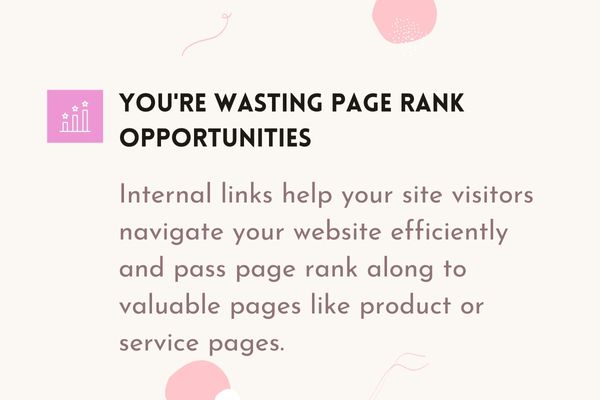
3. Without proper internal linking, you’re wasting page rank opportunities

Internal linking is an important part of any website’s optimization.
By linking to other pages on your site, you’re passing along some of your page rank authority and helping those other pages to rank better in search engine results pages (SERPs).
However, if you don’t do it correctly, you could be wasting those opportunities.
There are a few key things to keep in mind when creating internal links:
- First, make sure that the pages you’re linking to are relevant to the page you’re linking from.
- If you’re linking from a product page to a category page, for example, make sure that the products on the category page are related to the product on the original page.
- Second, use keyword-rich anchor text when possible. This will help the target pages rank better for those keywords.
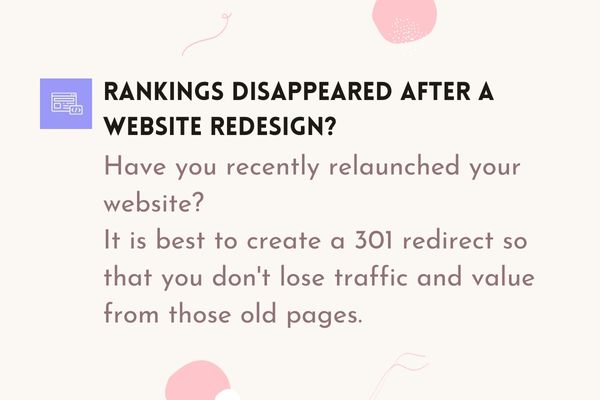
4. Dropped rankings after moving to a new domain or a site redesign?
If you’ve moved your website to a new domain, or redesigned your site, you may have noticed a significant drop in your site’s search engine rankings.
This is because Google (and other search engines) take into account a variety of factors when ranking websites, and one of those factors is the age of the domain name or website.
In other words, the longer your site has been around, the higher it will rank in search engine results pages (SERPs).
How to do site redesign without losing search rankings?
Redesigning a website can be a daunting task.
You want to make sure that you keep your search engine rankings while making the changes.
Here are some tips on how to do a site redesign without losing your search engine rankings
- Make small changes
- When you are making changes to your website, make sure that you make small changes at a time.
- This will help ensure that you don’t lose your search engine rankings.
- Use the same URL structure
- When you are redesigning your website, use the same URL structure as before.
- This will help keep your search engine rankings intact.
- 301 redirects
- If you are changing the location of your pages or the URLs, use 301 redirects to point the old pages to the new ones.
- This will help keep your search engine rankings in tact.
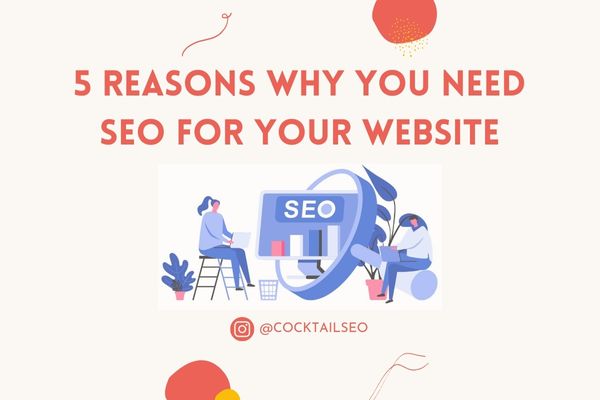
5. The website is slow and doesn’t rank well? What to do?
There are a few things you can do if your website is slow and doesn’t rank well.
- You can start by checking your website speed with tools like GTMetrix and Google PageSpeed Insights.
- You can also use the Fetch as Google tool in Search Console to see how your website renders on desktop and mobile devices.
Page speed is the time it takes for a page to load on a web browser.
It is a critical part of the user experience and can impact website traffic, bounce rates, and conversions.
Page speed can be improved through optimizing images, scripts, and stylesheets. Additionally, using a content delivery network (CDN) can improve page speed.
5 important steps to improve a website’s page loading time
Page loading time is an important aspect of web design that is often overlooked.
A slow loading website can frustrate users and cause them to leave before they have a chance to fully explore your site.
There are several things you can do to improve your website’s page loading time and make your visitors happier.
Here are five important steps:
- Optimize your images.
- Make sure that your images are the correct size and format for the web.
- You can use a tool like Photoshop or ImageOptim to optimize your images for faster loading times.
- Use a content delivery network (CDN).
- A CDN will help deliver your content more quickly and efficiently, which will improve your page loading time.
- Minimize HTTP requests.
- HTTP requests are the requests made by a browser for individual files, such as images, scripts, and stylesheets.
- Load JavaScript asynchronously.
- If you want to improve the performance of your website, you should consider eliminating the render blocking JavaScripts or moving some JavaScripts to footer.
- The best practice is to load only the scripts that are absolutely necessary in above the fold section for the pages to work properly.
- Make your website responsive.
- If you have an older or non-responsive website, make sure to update it.
- Responsive websites will load faster and will be easier for users to navigate.
To Conclude,
If you have a website, it’s important to make sure it’s optimized for search engines.
SEO can help your website rank higher in search engine results pages, which means more people will see your website and potentially click through to it.
Optimizing your website for search engines can also help you attract more visitors from other websites and social media platforms.
